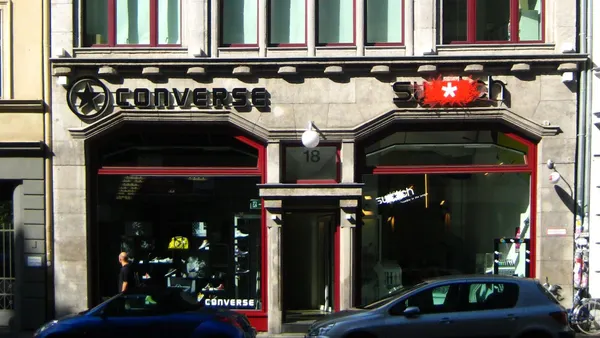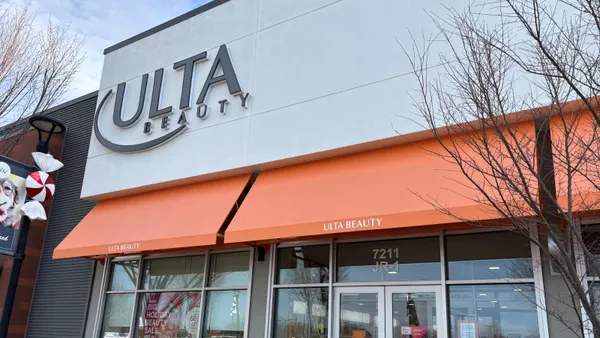Dive Brief:
- Kohl's said Monday that its total and comparable store sales rose 6.9% in November and December, compared to the year-ago period, according to a press release.
- Kohl's Chairman and CEO Kevin Mansell said in a statement that "all lines of business and all regions reported comp positive sales," with digital sales accelerating "significantly" and store sales rising on "strong" traffic during the holiday period.
- Citing "better-than-expected holiday sales," the discount department store retailer raised its earnings guidance for fiscal 2017 to between $4.10 and $4.20 per share (before a $30 million tax settlement), up from previous estimates of $3.72 to $3.92.
Dive Insight:
Kohl's is among the retailers riding a relatively buoyant wave of holiday sales.
Early estimates showed sales for the industry rising 5% during the period, the largest year-over-year increase since 2011, according to the latest Mastercard SpendingPulse report. At 18.1% growth during the holidays, e-commerce sales continued their ballistic expansion.
Going into December, consumer confidence was at a 17-year high, noted Retail Metrics president Ken Perkins.
Also basking in the holiday glow was the company's department store peer J.C. Penney, which reported last week that same-store sales rose 3.4% for the combined nine-week holiday period ending Dec. 30. But at the same time the department store chain lost 0.5% market share in the two weeks after Thanksgiving, while Amazon gained (2.6%), as did Best Buy (0.2%), according to analytics company Earnest Research. (Walmart, Target and Macy's were also losers in market share.)
Kohl's gained market share during that period, according to Earnest Research. In fact, it gained the most share (1.4%) among its department store rivals, which mostly lost share. That puts Kohl's in a stronger position at the outset of 2018. That position could grow even stronger as Macy's plans to close some stores in the coming months, Sears — as per usual — plans to close a lot (more than 100 stores to start the year) and the financially struggling Bon-Ton plans to close at least 40 stores in 2018.
Cowen and Company analysts, led by Oliver Chen, wrote in a note Monday that the retailer's "strong holiday sales were a result of continued store and digital investments, improved traffic, better inventory management, and an overall strong macroeconomic backdrop giving consumers confidence."
Chen and his team added, "Also, we believe [Kohl's] is a beneficiary of its off-mall physical store footprint which is more convenient for customers to visit."
The company's recent sales increases are partly a reflection of its effort to boost traffic to stores, which has included not just its curious decision to invite in Amazon, but also new products, like its recent tie-up with Under Armour.
But in an era of stiff competition in retail and growing online sales, Kohl's may have to get even more radical, GlobalData Retail Managing Director Neil Saunders said in a note last fall. The answer could be found in part at Kohls' new smaller format stores, he said. With 60% less space and 25% less inventory than a standard Kohl's store, the locations are resonating with customers. "It allows Kohl's to tap dense urban markets, which provides a lucrative future growth opportunity," Saunders said. "The concept is also more profitable, which, over time, should help the bottom line."
Saunders hailed the department store's momentum, but warned against leaning on discounts to further drive movement in sales and traffic. "As much as this is a necessary evil, we believe that it could have a negative impact on an already weakening bottom line," he said. "This is something Kohl's will need to remedy if it is to reap the rewards of improved customer numbers."
Noting that the company's merchandising has lost favor among consumers in the past five years, Morgan Stanley analysts, led by Kimberly Greenberger, wrote in a Jan. 2 report that the retailer is "in a weakened competitive position, particularly relative to the more compelling value of off-price retailers."
"Further, [the company's] struggles to secure compelling national brands for its assortment," the analysts added. "We see ongoing sales and earnings risk."











